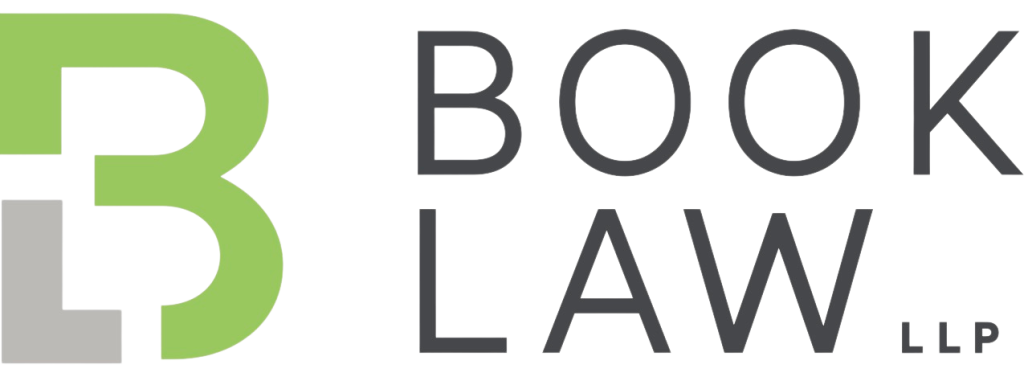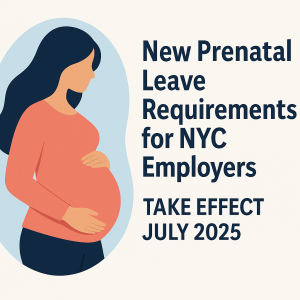On August 3, 2020, a New York federal court (“Court”) vacated portions of the U.S. Department of Labor’s (“DOL”) regulations (“Final Rule”) with respect to the Families First Coronavirus Response Act (“FFCRA”). The State of New York, which brought the lawsuit, argued that the Final Rule exceeded the DOL’s authority to interpret the statute. The Court agreed that the DOL exceeded its authority with respect to four portions of the Final Rule and struck down those parts: (1) the work-availability requirement; (2) the definition of “health care provider” for purposes of the exemption; (3) the requirement that employees obtain the employer’s consent to take intermittent leave; and (4) the requirement that employees provide documentation supporting their leave request beforehand.
Here, in a nutshell, were the Court’s findings:
Work-Availability Requirement
The FFCRA provides paid sick leave under the Emergency Paid Sick Leave Act (“EPSLA”) to employees who are unable to work (or telework) due to any of six qualifying reasons, and provides paid leave under the Emergency Family and Medical Leave Expansion Act (“EFMLEA”) to employees who are unable to work (or telework) due to a need for leave to care for a child whose school or childcare is unavailable due to COVID-19. The Final Rule imposes a restriction, the “work-availability requirement,” on employees seeking leave under three of the six EPSLA reasons and employees seeking leave under the EFMELA. According to the Final Rule, such employees are not eligible for FFCRA paid leave if their employer does not have work for them. The DOL argued that FFCRA leave is limited to employees who cannot work solely because of the reasons listed in FFCRA. Employees who cannot work because their employers do not have work for them cannot show that they are unable to work solely because of the reasons listed in FFCRA. The Court found the DOL’s reasoning for imposing a work availability requirement insufficient to support a “monumental policy decision” that would exclude people that Congress intended to be helped by the FFCRA. The Court therefore struck down the Final Rule’s “work-availability requirement.”
Definition of “Health Care Provider”
The FFCRA allows employers to exclude “health care providers” from leave benefits. The Final Rule defines health care providers to include all employees of health care providers, even if the employees themselves are not capable of providing healthcare services. For example, the Final Rule allows employers to exclude “anyone employed at” any doctor’s office, which might include a receptionist, billing coordinator or office manager. The Court found the DOL’s interpretation of the FFCRA to be overly broad and expansive, and inconsistent with the text of the FFCRA, and therefore struck down the Final Rule’s definition of “health care provider” for the purposes of determining who may be excluded from benefits.
Intermittent Leave
The FFCRA is silent regarding intermittent leave and so, according to the Court, the DOL has authority to fill the gap with regulations. The DOL’s Final Rule prohibits intermittent leave for employees who are under quarantine by order of a public agency or direction of a health care provider, or are caring for a person who is under quarantine by order of a public agency or direction of a health care provider. The Final Rule permits employees to take intermittent leave to care for a child whose school or childcare is unavailable due to COVID-19, but only with the consent of their employer. The Court found that the DOL did not reasonably justify why employers must provide permission to employees in order to take intermittent leave for child care. Therefore, the Court invalidated the “consent requirement” of the Final Rule.
Documentation Requirements
The FFCRA requires employees taking leave to submit to their employers notice and documentation in support of the leave request. The FFCRA provides when employees must submit such notice and documentation. Employees taking EPSLA leave must provide notice “after the first workday (or portion thereof)” that the employee takes leave. Employees taking EFMLEA leave that is foreseeable must give “such notice of leave as is practicable.” The Final Rule, in contrast, requires the employee requesting leave to provide their employer with documentation prior to taking the leave. The Court found that the Final Rule was inconsistent with the FFCRA and more stringent than the FFCRA and hence struck down the timing portion of the Final Rule’s documentation requirement.
Takeaways
Currently, there is no clarity as to whether or not the DOL will alter its Final Rule. Recall that the FFCRA expires, by its own terms, on December 31, 2020. In the interim, unless the Court’s decision is stayed pending appeal (or overturned on appeal), employers covered by the FFCRA should heed the following:
- Work-availability: Allow eligible employees to take EPSLA and EFMLEA leave if they are unable to work (or telework) because of any of the qualifying reasons related to COVID-19 even if the employer does not have work available for them.
- Health provider exemption: Provide FFCRA benefits to employees of health care providers who themselves are not health care providers (i.e., receptionists, billing coordinators, office managers, and other administrative employees without health care duties).
- Intermittent leave: Allow eligible employees to take FFCRA leave intermittently if such employee requesting leave are unable to work (or telework) because they need to care for a child whose school or place of care is unavailable due to COVID-19. Do not require such eligible employees to obtain consent from the employer before taking intermittent leave.
- Documentation requirement: Do not require, as a precondition for taking FFCRA leave, employees to submit notice of need for leave and/or documentation prior to starting their leave.
If you are a covered employer pursuant to the FFCRA and have questions or concerns about the effects of this court decision on your business, please contact Chaim Book at cbook@mb-llp.com or Sheryl Galler at sgaller@mb-llp.com.

